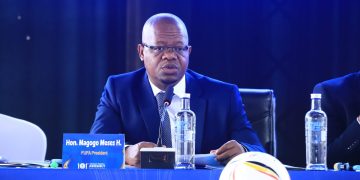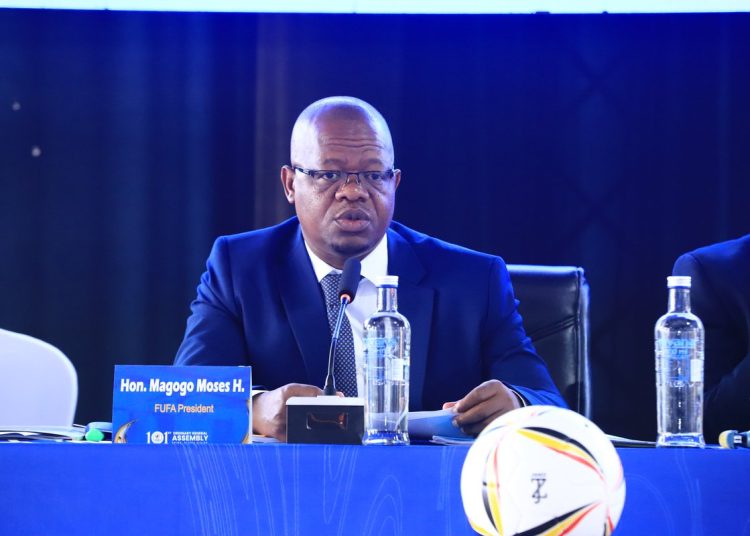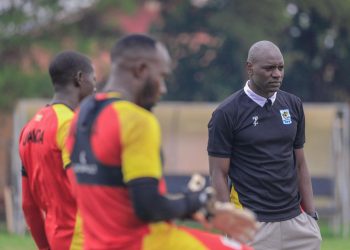Hon. Moses Hassim Magogo has placed revenue generation at the heart of his new term as FUFA president, promising to overhaul football’s financial model in Uganda to ensure clubs no longer have to operate on the brink of collapse.
Speaking at the FUFA General Assembly ahead of his reelection, Magogo said the future of the game depended on turning football into a self-sustaining business.
His message landed at a time when many clubs across the country are grappling with chronic cash shortages, mismanagement, and the absence of reliable funding.
Uganda’s top-tier league continues to fall short in terms of financial reward.
Last season, the Premier League winners walked away with just UGX 60 million in prize money—a figure dwarfed by what league champions in neighboring Tanzania earn, with their packages approaching UGX 950 million.
Teams that finish near the bottom receive as little as UGX 500,000, an amount that hardly covers basic operational costs like transport or feeding.
The situation is even worse in the second-tier Big League, where clubs in remote areas, such as Arua Hill, have faced months of delayed player salaries and work with just a handful of training balls.
Poor morale, lack of motivation, and performance dips have become common, with many clubs now relying solely on the passion of their players and coaching staff to stay competitive.
Financial instability has also exposed the vulnerability of clubs that depend on individual backers.
SC Victoria University, once a league contender, collapsed after its main sponsor pulled out, a pattern that has been repeated across other teams.
Infrastructure issues remain a massive hurdle. Most clubs lack proper stadiums or training grounds, and upgrading even a single pitch can cost upwards of UGX 60 million.
Without good playing surfaces, clubs not only struggle to attract fans but also lose out on potential revenue from matchday activities.
Many teams play in half-empty grounds, not for lack of supporters, but because the facilities simply don’t meet the basic expectations of a paying fan.
Magogo says this must change. He spoke of transforming the sport’s “business side,” vowing to expand income sources through merchandise sales, broadcasting rights, and more attractive sponsorship packages.
He stressed the need for players and clubs to receive fair compensation, and outlined plans to elevate the FUFA brand to draw in stronger commercial partners.
Magogo also hopes that Uganda’s upcoming role as co-host of CHAN 2024 and AFCON 2027 will create new commercial opportunities, both through tourism and infrastructure development.
The challenge now lies in making these promises count.
Critics say FUFA must do more than simply talk about transformation. They have long argued that the quality of Ugandan football will only improve when clubs are given the financial support they need to grow.
As Magogo begins his new term, the spotlight will be on whether he can shift the narrative from empty stadiums and unpaid players to a game that rewards talent and encourages investment.
The health of Ugandan football no longer hinges on passion alone. For clubs battered by years of financial neglect, this new term must deliver the one thing they need most: money.



























